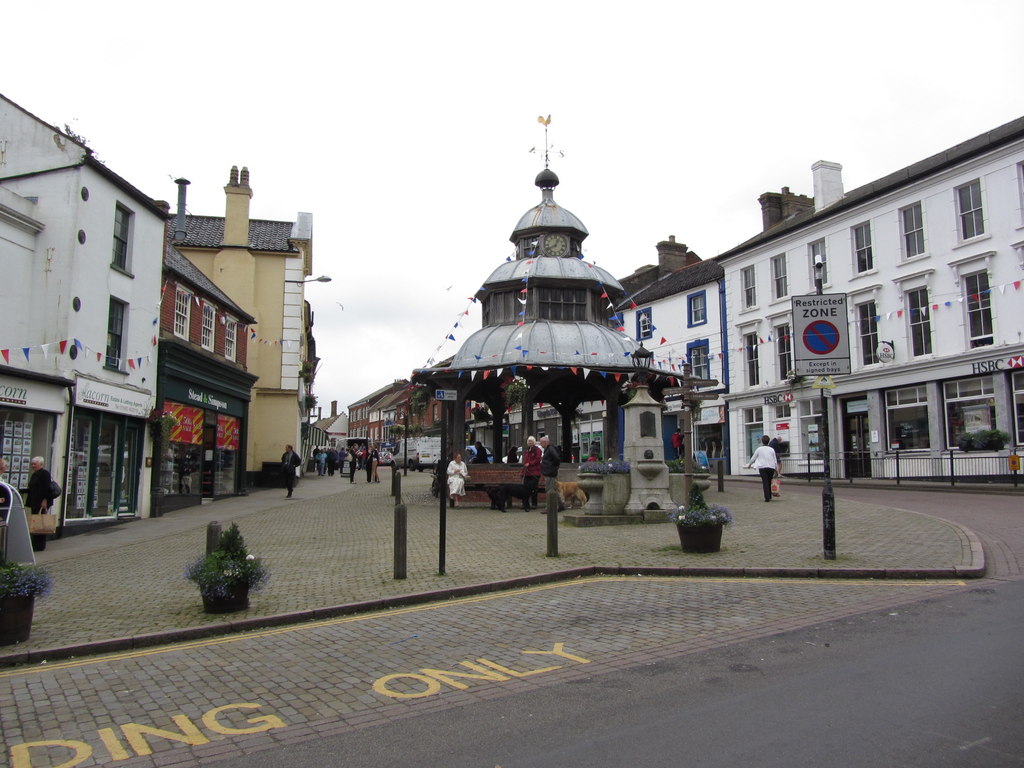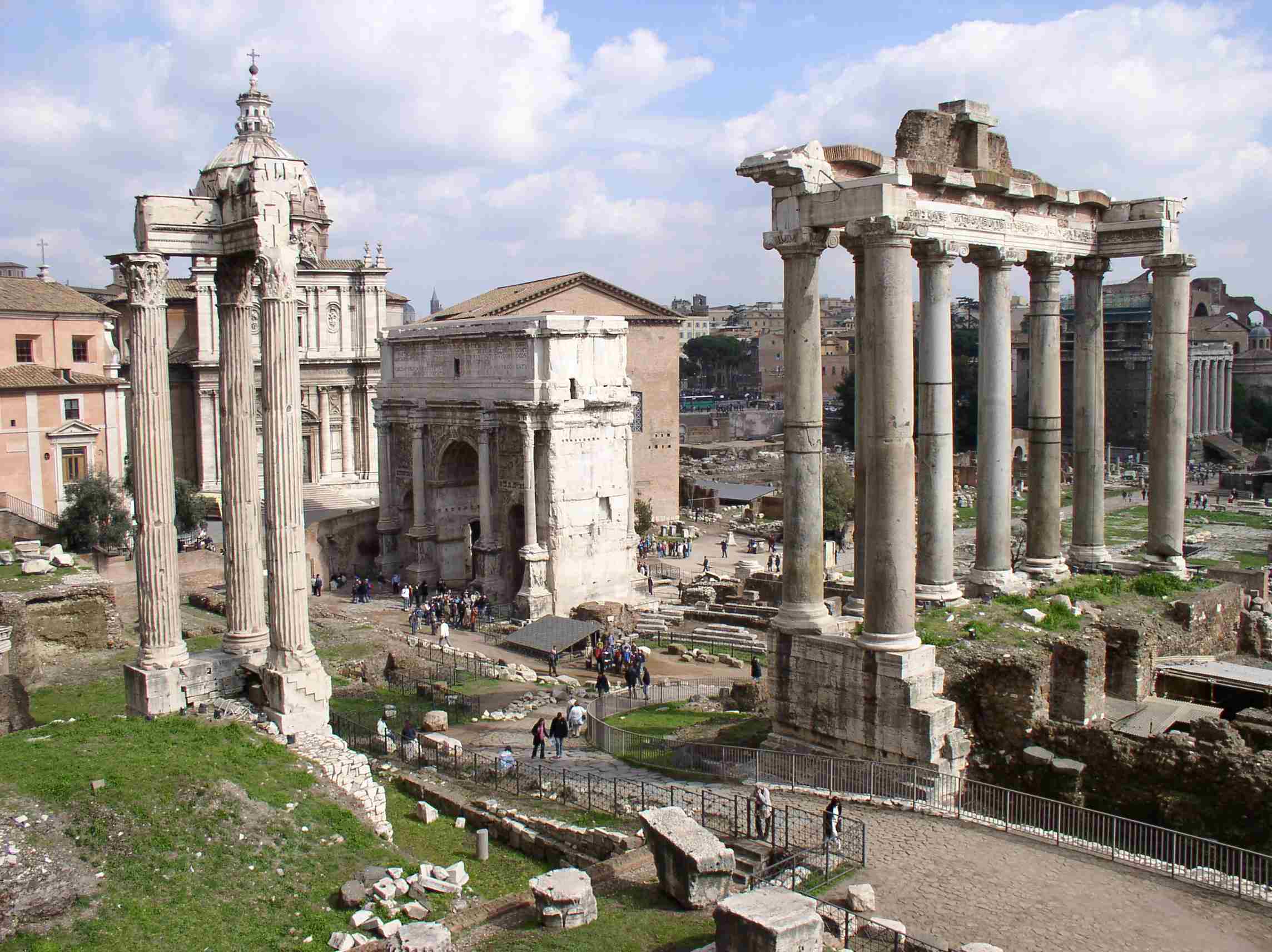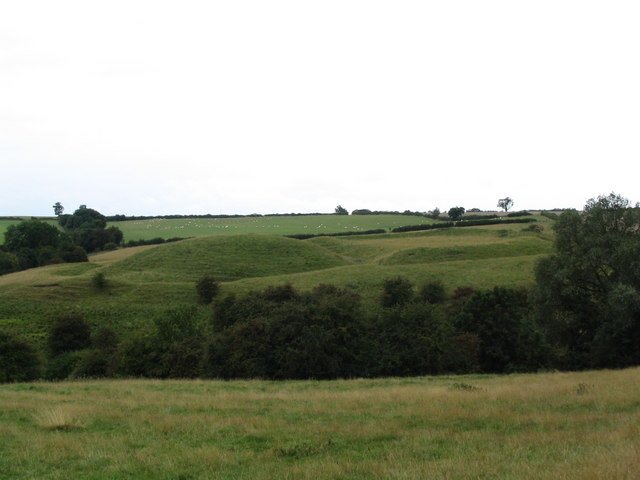|
Gresham Castle
Gresham Castle is located south of the village of Gresham in the north of the English county of Norfolk.''OS Explorer Map 252 - Norfolk Coast East''. . The medieval castle was actually a fortified manor house. Permission by licence to crenellate his manor house was gained by Sir Edmund Bacon in 1318. Gresham was one of a group of late castles to be fortified or built along the east coast that include Baconsthorpe, Caister, Claxton and Mettingham Castle in Suffolk. Description The castle is situated in a green field site close to the village. It is rectangular in shape with a bulbous protrusion at the north-west corner. A moat surrounding the site is twelve to fifteen feet wide at points and still contains water which can restrict access to the site. The waters of the moat were once supplied from Gur Beck which now has been re-directed and runs approximately 50 meters adjacent to the remains of the castle. The central platform is approximately 2378 square meters (2844 square yar ... [...More Info...] [...Related Items...] OR: [Wikipedia] [Google] [Baidu] |
North Norfolk
North Norfolk is a local government district in Norfolk, England. Its council is based in Cromer. The population at the 2011 Census was 101,149. History The district was formed on 1 April 1974, under the Local Government Act 1972. It was a merger of Cromer Urban District, North Walsham Urban District, Sheringham Urban District, Wells-next-the-Sea Urban District, Erpingham Rural District, Smallburgh Rural District, and Walsingham Rural District. The district was originally to be called Pastonacres, but changed its name by resolution of the council and permission of the Secretary of State for Environment before it formally came into existence on 1 April 1974. Politics Elections to the district council are held every four years, with all of the seats on the council up for election every fourth year. The council was run by a Conservative administration, the Conservative party having gained a majority of 8 seats at the 2011 elections, which they increased to 18 at the 20 ... [...More Info...] [...Related Items...] OR: [Wikipedia] [Google] [Baidu] |
William Paston (died 1444)
William Paston (1378 – 13 August 1444), the only son of Clement Paston and Beatrice Somerton, had a distinguished career as a lawyer and Justice of the Common Pleas. He acquired considerable property, and is considered "the real founder of the Paston family fortunes". Family William Paston was the only son of Clement Paston (d. 1419) and Beatrice Somerton (d. 1409). Two decades after William Paston's death it was alleged that the Paston family had descended from serfs. However, during the reign of Edward IV the Pastons were granted a declaration that they were "gentlemen discended lineally of worship blood sithen ithinthe conquest hither". Career By 1406 William Paston was an attorney in the Court of Common Pleas, and in the ensuing years occupied various legal posts in East Anglia, acting in 1411 as counsel to the city of Norwich and the cathedral priory, and as chief steward to Bishop Richard Courtenay (d.1415), chief steward of Bromholm Priory, and chief steward of Bishop ... [...More Info...] [...Related Items...] OR: [Wikipedia] [Google] [Baidu] |
Ruins In Norfolk
Ruins () are the remains of a civilization's architecture. The term refers to formerly intact structures that have fallen into a state of partial or total disrepair over time due to a variety of factors, such as lack of maintenance, deliberate destruction by humans, or uncontrollable destruction by natural phenomena. The most common root causes that yield ruins in their wake are natural disasters, armed conflict, and population decline, with many structures becoming progressively derelict over time due to long-term weathering and scavenging. There are famous ruins all over the world, with notable sites originating from ancient China, the Indus Valley and other regions of ancient India, ancient Iran, ancient Israel and Judea, ancient Iraq, ancient Greece, ancient Egypt, Roman sites throughout the Mediterranean Basin, and Incan and Mayan sites in the Americas. Ruins are of great importance to historians, archaeologists and anthropologists, whether they were once individu ... [...More Info...] [...Related Items...] OR: [Wikipedia] [Google] [Baidu] |
English Heritage Sites In Norfolk
English usually refers to: * English language * English people English may also refer to: Peoples, culture, and language * ''English'', an adjective for something of, from, or related to England ** English national identity, an identity and common culture ** English language in England, a variant of the English language spoken in England * English languages (other) * English studies, the study of English language and literature * ''English'', an Amish term for non-Amish, regardless of ethnicity Individuals * English (surname), a list of notable people with the surname ''English'' * People with the given name ** English McConnell (1882–1928), Irish footballer ** English Fisher (1928–2011), American boxing coach ** English Gardner (b. 1992), American track and field sprinter Places United States * English, Indiana, a town * English, Kentucky, an unincorporated community * English, Brazoria County, Texas, an unincorporated community * En ... [...More Info...] [...Related Items...] OR: [Wikipedia] [Google] [Baidu] |
Castles In Norfolk
A castle is a type of fortification, fortified structure built during the Middle Ages predominantly by the nobility or royalty and by Military order (monastic society), military orders. Scholars debate the scope of the word ''castle'', but usually consider it to be the private fortified house, fortified residence of a lord or noble. This is distinct from a palace, which is not fortified; from a fortress, which was not always a residence for royalty or nobility; from a ''pleasance'' which was a walled-in residence for nobility, but not adequately fortified; and from a fortified settlement, which was a public defence – though there are many similarities among these types of construction. Use of the term has varied over time and has also been applied to structures such as hill forts and 19th-20th century homes built to resemble castles. Over the approximately 900 years when genuine castles were built, they took on a great many forms with many different features, although s ... [...More Info...] [...Related Items...] OR: [Wikipedia] [Google] [Baidu] |
Archaeology Of Norfolk
Archaeology or archeology is the scientific study of human activity through the recovery and analysis of material culture. The archaeological record consists of artifacts, architecture, biofacts or ecofacts, sites, and cultural landscapes. Archaeology can be considered both a social science and a branch of the humanities. It is usually considered an independent academic discipline, but may also be classified as part of anthropology (in North America – the four-field approach), history or geography. Archaeologists study human prehistory and history, from the development of the first stone tools at Lomekwi in East Africa 3.3 million years ago up until recent decades. Archaeology is distinct from palaeontology, which is the study of fossil remains. Archaeology is particularly important for learning about prehistoric societies, for which, by definition, there are no written records. Prehistory includes over 99% of the human past, from the Paleolithic until the advent of ... [...More Info...] [...Related Items...] OR: [Wikipedia] [Google] [Baidu] |
List Of Castles In England
This list of castles in England is not a list of every building and site that has "castle" as part of its name, nor does it list only buildings that conform to a strict definition of a castle as a medieval fortified residence. It is not a list of every castle ever built in England, many of which have vanished without trace, but is primarily a list of buildings and remains that have survived. In almost every case the buildings that survive are either ruined, or have been altered over the centuries. For several reasons, whether a given site is that of a medieval castle has not been taken to be a sufficient criterion for determining whether or not that site should be included in the list. Castles that have vanished or whose remains are barely visible are not listed, except for some important or well-known buildings and sites. Fortifications from before the medieval period are not listed, nor are architectural follies. In other respects it is difficult to identify clear and cons ... [...More Info...] [...Related Items...] OR: [Wikipedia] [Google] [Baidu] |
Castles In Great Britain And Ireland
Castles have played an important military, economic and social role in Great Britain and Ireland since their introduction following the Norman invasion of England in 1066. Although a small number of castles had been built in England in the 1050s, the Normans began to build motte and bailey and ringwork castles in large numbers to control their newly occupied territories in England and the Welsh Marches. During the 12th century the Normans began to build more castles in stone – with characteristic square keep – that played both military and political roles. Royal castles were used to control key towns and the economically important forests, while baronial castles were used by the Norman lords to control their widespread estates. David I invited Anglo-Norman lords into Scotland in the early 12th century to help him colonise and control areas of his kingdom such as Galloway; the new lords brought castle technologies with them and wooden castles began to be established over ... [...More Info...] [...Related Items...] OR: [Wikipedia] [Google] [Baidu] |
Gresham Castle Norfolk, 18th October 2008 (5)
{{disambig, geo ...
Gresham may refer to: Places Australia *Gresham County, New South Wales United Kingdom *Gresham, Norfolk United States *Gresham, Chicago, Illinois *Gresham, Missouri * Gresham, Nebraska * Gresham, Oregon * Gresham, Texas *Gresham, Wisconsin Buildings * Gresham Hotel, Dublin, Ireland * Gresham Palace, Budapest, Hungary * Gresham (Edgewater, Maryland) Educational establishments * Gresham College, London, England * Gresham Middle School (other) *Gresham's School, Norfolk, England Other * Gresham (surname) * Gresham's law, in economics * USCGC ''Gresham'', a series of boats * Gresham Technologies plc See also * Grisham (other) * Grissom (other) Grissom may refer to: * Grissom, North Carolina, unincorporated community * Grissom (surname) **Gus Grissom, one of the original NASA Project Mercury astronauts and pilot of ''Gemini 3'' **Gil Grissom, fictional character in the television series ' ... [...More Info...] [...Related Items...] OR: [Wikipedia] [Google] [Baidu] |
Paston Letters
The ''Paston Letters'' is a collection of correspondence between members of the Paston family of Norfolk gentry and others connected with them in England between the years 1422 and 1509. The collection also includes state papers and other important documents. The letters are a noted primary source for information about life in England during the Wars of the Roses and the early Tudor period. They are also of interest to linguists and historians of the English language, being written during the Great Vowel Shift, and documenting the transition from Late Middle English to Early Modern English. History of the collection The large collection of letters and papers was acquired in 1735 from the executors of the estate of William Paston, 2nd Earl of Yarmouth, the last in the Paston line, by the antiquary Francis Blomefield. On Blomefield's death in 1752 they came into the possession of Thomas Martin of Palgrave, Thomas Martin of Palgrave, Suffolk. On his death in 1771 some letters pa ... [...More Info...] [...Related Items...] OR: [Wikipedia] [Google] [Baidu] |
Wiltshire
Wiltshire (; abbreviated Wilts) is a historic and ceremonial county in South West England with an area of . It is landlocked and borders the counties of Dorset to the southwest, Somerset to the west, Hampshire to the southeast, Gloucestershire to the north, Oxfordshire to the northeast and Berkshire to the east. The county town was originally Wilton, after which the county is named, but Wiltshire Council is now based in the county town of Trowbridge. Within the county's boundary are two unitary authority areas, Wiltshire and Swindon, governed respectively by Wiltshire Council and Swindon Borough Council. Wiltshire is characterised by its high downland and wide valleys. Salisbury Plain is noted for being the location of the Stonehenge and Avebury stone circles (which together are a UNESCO Cultural and World Heritage site) and other ancient landmarks, and as a training area for the British Army. The city of Salisbury is notable for its medieval cathedral. Swindon is the ... [...More Info...] [...Related Items...] OR: [Wikipedia] [Google] [Baidu] |
John Paston (died 1466)
John Paston I (10 October 1421 – 21 or 22 May 1466) was an English country gentleman and landowner. He was the eldest son of the judge William Paston, Justice of the Common Pleas. After he succeeded his father in 1444, his life was marked by conflict occasioned by a power struggle in East Anglia between the dukes of Suffolk and Norfolk, and by his involvement in the affairs of his wife's kinsman, Sir John Fastolf. Between 1460–1466 he was Justice of the Peace for Norfolk, and was elected as a member of parliament in 1460 and again in 1461. A number of his letters survive among the ''Paston Letters'', a rich source of historical information for the lives of the English gentry of the period. Family John Paston, born 10 October 1421, was the eldest son and heir of William Paston, Justice of the Common Pleas, and Agnes Barry (d. 18 August 1479), daughter and coheir of Sir Edmund Barry (d. 1433) of Horwellbury, near Therfield and Royston, Hertfordshire. He had three younge ... [...More Info...] [...Related Items...] OR: [Wikipedia] [Google] [Baidu] |



.jpg)


